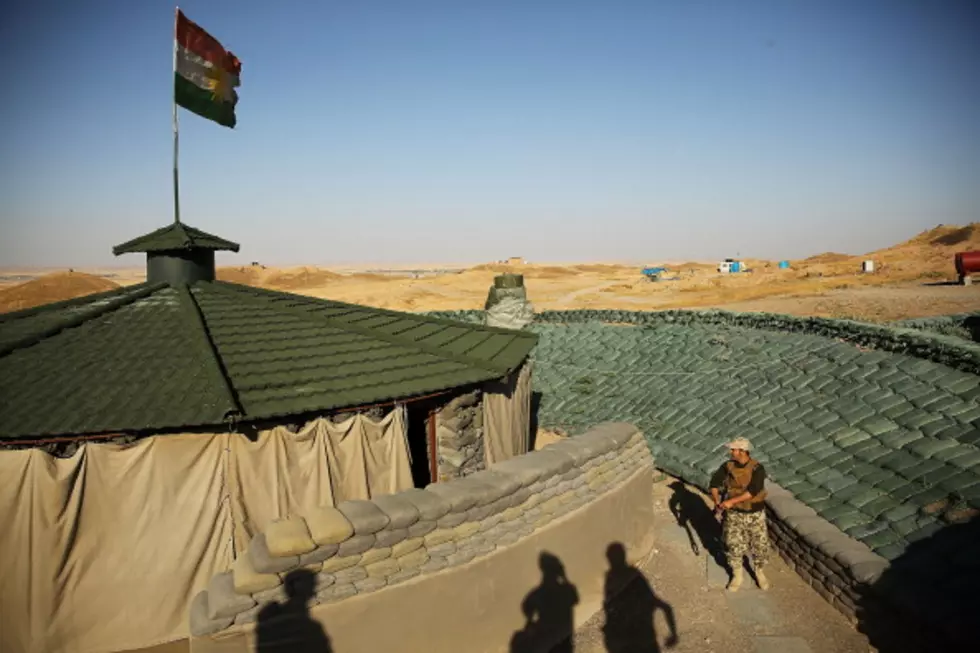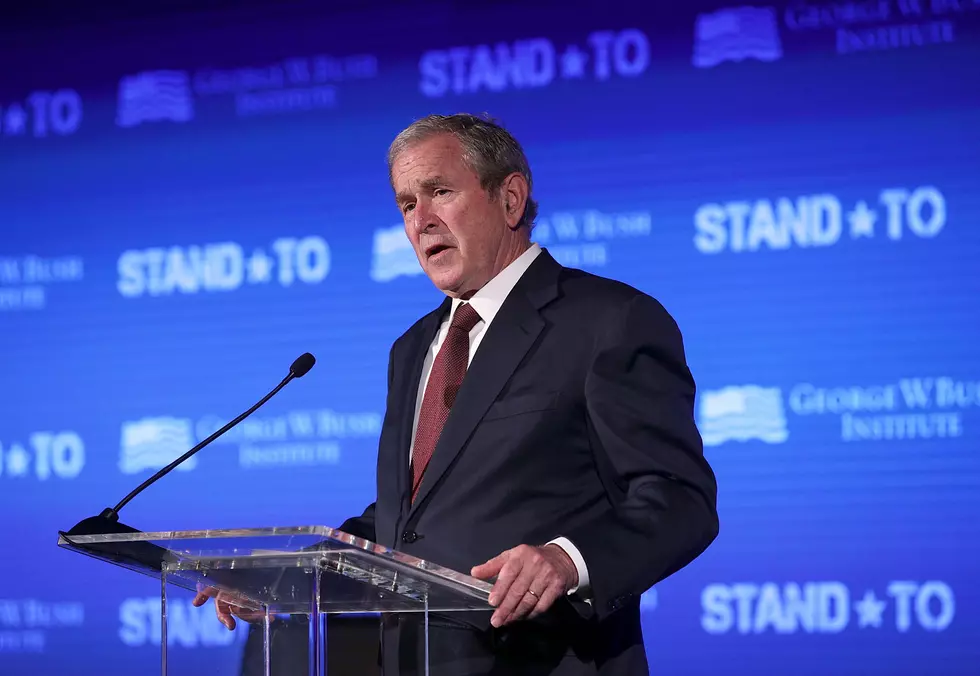
Chad’s Morning Brief: U.S. Airstrikes Alone Not Enough to Break ISIS, Obamacare Enrollment Is Shrinking, and Other Top Stories
Here is your Morning Brief for the morning of August 12, 2014. Give me your feedback below and tune in to The Chad Hasty Show for these and many more topics from 8:30 to 11am. Remember, you can listen online at KFYO.com or on your iPhone/Android with the radioPup App.
ISIS
According to The Hill, if the United States is wanting to defeat ISIS, airstrikes alone won't do it.
A senior U.S. military official Monday said that American airstrikes have slowed the advance of the Islamic State in Iraq and Syria’s forces (ISIS or ISIL), but are unlikely to weaken the terror group’s overall capabilities.
“We assess that U.S. airstrikes in northern Iraq have slowed ISIL's operational tempo and temporarily disrupted their advances toward the province of Erbil,” said Army Lt. Gen. William Mayville, Joint Chiefs of Staff director of operations.
But he warned that the group “remains focused on securing and gaining additional territory throughout Iraq and will sustain its attacks against Iraqi and Kurdish security forces and their positions, as well as target Yazidis, Christians and other minorities.”
The U.S. began hitting ISIS targets last Friday, and has so far conducted 15 airstrikes using F-15Es, F-16s and F/A-18s fighter jets and MQ-1 Predator drones. The militant offshoot of al Qaeda had closed in on Erbil, a Kurdish city in northern Iraq. Their advance led to thousands of refugees from the Yazidi sect fleeing and seeking refuge on Mt. Sinjar without food or water and threatened U.S. personnel and interests in Erbil.
Mayville said the military would not expand its operations outside their current missions to protect U.S. citizens and facilities in Erbil, and end the siege of Mt. Sinjar.
It is unclear when that objective will be achieved, but Mayville said the airstrikes have “helped check the advance” of ISIS forces around Mt. Sinjar and in the area west of Erbil.
“U.S. airstrikes are also providing the Kurdish security forces with time to fortify their defensive positions with the supplies they're receiving from the central government of Baghdad,” he continued.
“As a result, the Kurdish security forces are holding territory in the vicinity of Erbil, and it has been reported in the media they retook key communities near Erbil itself."
I still believe that the U.S. needs to do more in order to defeat ISIS. I don't believe that we can wait for the Iraqi's to do it.
Obamacare Numbers Shrinking
Haven't heard much about Obamacare enrollment numbers lately have we? According to Investors.com, it is because enrollment might actually be shrinking.
ObamaCare exchange statistics should clear up any doubt as to why the Obama Administration has been tight-lipped about enrollment since celebrating 8 million sign-ups in mid-April.
Reality, evidence suggests, could require quite a come-down from those lofty claims.
The nation's third-largest health insurer had 720,000 people sign up for exchange coverage as of May 20, a spokesman confirmed to IBD. At the end of June, it had fewer than 600,000 paying customers. Aetna expects that to fall to "just over 500,000" by the end of the year.
That would leave Aetna's paid enrollment down as much as 30% from that May sign-up tally.
"I think we will see some attrition ... We're already seeing it. And we expect that to continue through the end of the year," CEO Mark Bertolini said in a July 29 conference call.
It's not clear how representative Aetna's experience is of broader exchange trends, or whether its projection may be too conservative. (If it were representative, a similar 30% decline would drop ObamaCare enrollment to 6 million or less.)
Still, as one of ObamaCare's largest players, participating in exchanges in 16 states plus D.C., Aetna's experience provides a pretty good window into what is happening across the country, and there are other indications that enrollment has turned down.
Cigna (NYSE:CI) said that it expects its individual market customers, including more than 100,000 in the exchanges, to "move from 300,000 down to 280,000 in that range," Cigna CEO David Cordani said in a conference call.
You can read the entire story by clicking on the link above.
Other Top Stories:
These and many more topics coming up on today’s edition of The Chad Hasty Show. Tune in mornings 8:30-11am on News/Talk 790 KFYO, streaming online at kfyo.com, and now on your iPhone and Android device with the radioPup App. All guest interviews can be heard online in our podcast section after the show at kfyo.com.
More From News/Talk 95.1 & 790 KFYO








![19 Years Later, We Will Never Forget [OPINION]](http://townsquare.media/site/192/files/2016/02/World-Trade-Center-Attacks-Getty-Images.jpg?w=980&q=75)
